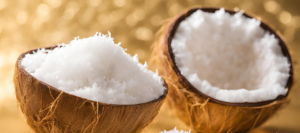Riding the Green Wave: Indian Coconuts in Sustainable Export

The global demand for sustainable and organic products has been on the rise in recent years. Consumers are becoming more conscious about the environmental impact of the products they purchase and the processes involved in their production. As a result, industries worldwide are shifting towards more sustainable practices. One such industry that has embraced sustainability is coconut exports, with India emerging as a major player in this green endeavor.
India is known for its rich biodiversity and has a long-standing tradition of coconut cultivation. The country is the second-largest producer of coconuts worldwide, and its mature coconuts and coconut byproducts have gained recognition for their quality and sustainability. Let’s delve deeper into why Indian coconuts are riding the green wave of sustainable export.
Sustainable Coconut Cultivation
One of the key reasons behind the sustainability of Indian coconut exports is the natural cultivation methods employed by farmers. Coconut trees in India are primarily grown in diverse agroforestry systems, which promote ecological balance and biodiversity conservation. These systems include intercropping with food crops, such as bananas, yams, and spices, reducing the dependency on chemical pesticides and fertilizers.
Furthermore, the practice of organic farming is gaining popularity among Indian coconut growers. Organic coconut cultivation excludes the use of synthetic fertilizers and pesticides, preserving soil health and preventing water contamination. This sustainable approach ensures that Indian coconuts are grown with minimal impact on the environment.
Eco-Friendly Coconut Processing
In India, the coconut processing industry has also taken significant steps towards becoming more eco-friendly. Coconut byproducts, such as coconut oil, coconut milk, and coconut flour, are produced through processes that prioritize energy efficiency and waste reduction.
Many coconut processing units in India have adopted modern technologies, such as energy-efficient machinery and waste management systems, to minimize their environmental footprint. These units focus on recycling and reusing byproducts, reducing greenhouse gas emissions and waste generation.
Fair Trade and Ethical Practices
Another aspect that contributes to the sustainability of Indian coconut exports is the emphasis on fair trade and ethical practices. Several organizations and cooperatives are actively involved in promoting fair prices for coconut farmers and ensuring their well-being. The fair trade certification guarantees that farmers receive just compensation for their labor while adhering to social and environmental standards.
By supporting fair trade coconut products, consumers can contribute to the sustainable livelihoods of small-scale farmers and communities. This ethical approach to coconut exports strengthens the bond between consumers and producers, fostering a more sustainable and inclusive supply chain for Indian coconuts.
Health Benefits and Diversity
Indian coconuts are not only environmentally friendly but also offer numerous health benefits. Coconuts are rich in essential nutrients, including vitamins, minerals, and healthy fats. Coconut oil, in particular, is known for its various health-promoting properties and is commonly used in cooking, skincare, and haircare products.
Moreover, the diversity of coconut byproducts extends beyond food and personal care. Indian coconuts are used to create handicrafts, home decor items, and coir products like mats and brushes. This wide range of applications highlights the versatility of coconuts and showcases their potential as sustainable alternatives in various industries.
Global Demand for Indian Coconuts
The increasing global demand for sustainable and organic products has amplified the popularity of Indian coconuts in the international market. Countries around the world, including the United States, the United Kingdom, and Germany, have shown a growing preference for ethically produced and environmentally friendly coconut products.
Exporters from India have been quick to capitalize on this demand, ensuring that their coconut products meet the required quality standards and certifications. The reputation of Indian coconuts as a sustainable choice has paved the way for their success in international markets, making them the preferred choice for eco-conscious consumers.
Conclusion
Indian coconuts are riding the green wave of sustainable export, thanks to their natural cultivation methods, eco-friendly processing, fair trade practices, health benefits, diversity, and increasing global demand. With the world’s growing appetite for sustainable and ethical products, Indian coconuts are well-positioned to continue their success in the international market.
By choosing Indian coconuts and coconut byproducts, consumers support a sustainable supply chain, empower local farmers, and contribute to the preservation of the planet. The journey towards sustainability starts with conscious choices, and Indian coconuts offer a delicious and eco-friendly option.
Useful links:
– Indian Coconut Exporters
– Fairtrade International
– Coconut Benefits and Uses



